#LookAtMe: Controversial film banned in home country to be screened in Australia
A film from a top tourist destination will be shown here after it was banned for being “offensive” and stoking “violence” in its own country.
A major new movie, the plot of which revolves around a YouTuber being muzzled by the authorities, has itself been muzzled by the authorities in the country where it was made.
“The echoes are not lost on me,” director Ken Kwek told news.com.au of his film #LookAtMe which, despite being made in the city-state by a Singaporean company with a primarily Singaporean cast, cannot legally be screened or broadcast in Singapore.
The film touches on many aspects of life in Singapore, including often taboo subjects such as homosexuality and criticism of religion.
The country’s media regulator has banned it because it deemed it to have the “potential to cause enmity and social division”.
The ban has shone a spotlight on some of the restrictive laws of the country of 5.5 million which is a favourite destination for Australians.
But Australians will be able to see the film when #LookAtMe is shown in Sydney in the coming days as part of the QueerScreen Mardi Gras film festival which coincides with the city’s World Pride celebrations.
“I’m obviously a little bit disappointed that the ban in Singapore has happened,” said Kwek.
“But I don’t make the rules. I can only tell the story”.
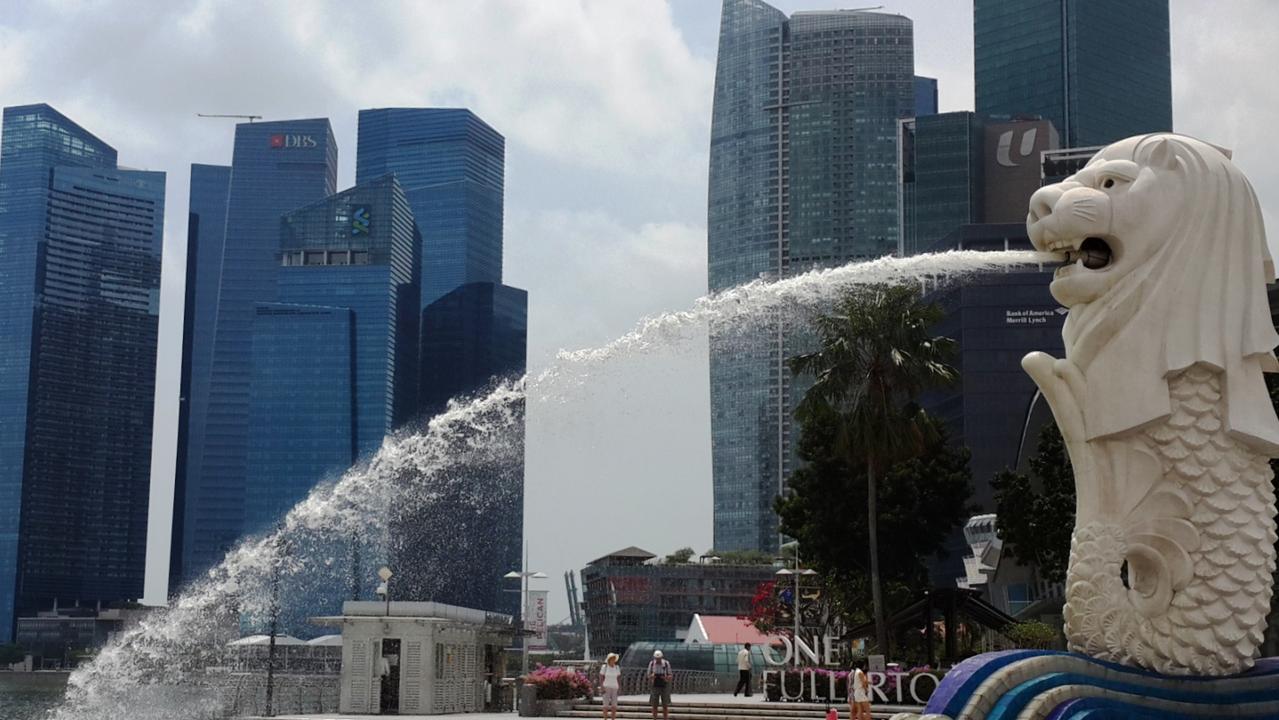
#LookAtMe’s plot revolves around twin brothers Sean and Ricky, both ingeniously played by Filipino-Malaysian actor Yao.
Attempts by the brothers to become YouTube stars through juvenile pranks, mostly at the expense of their mum Nancy portrayed by Pam Oei, fail until the pair attend an evangelical religious service where the pastor goes on a homophobic rant.
Sean uploads a childish skit to YouTube mocking the pastor, played by Adrian Pang, with a My Little Pony doll used as an inventive prop.
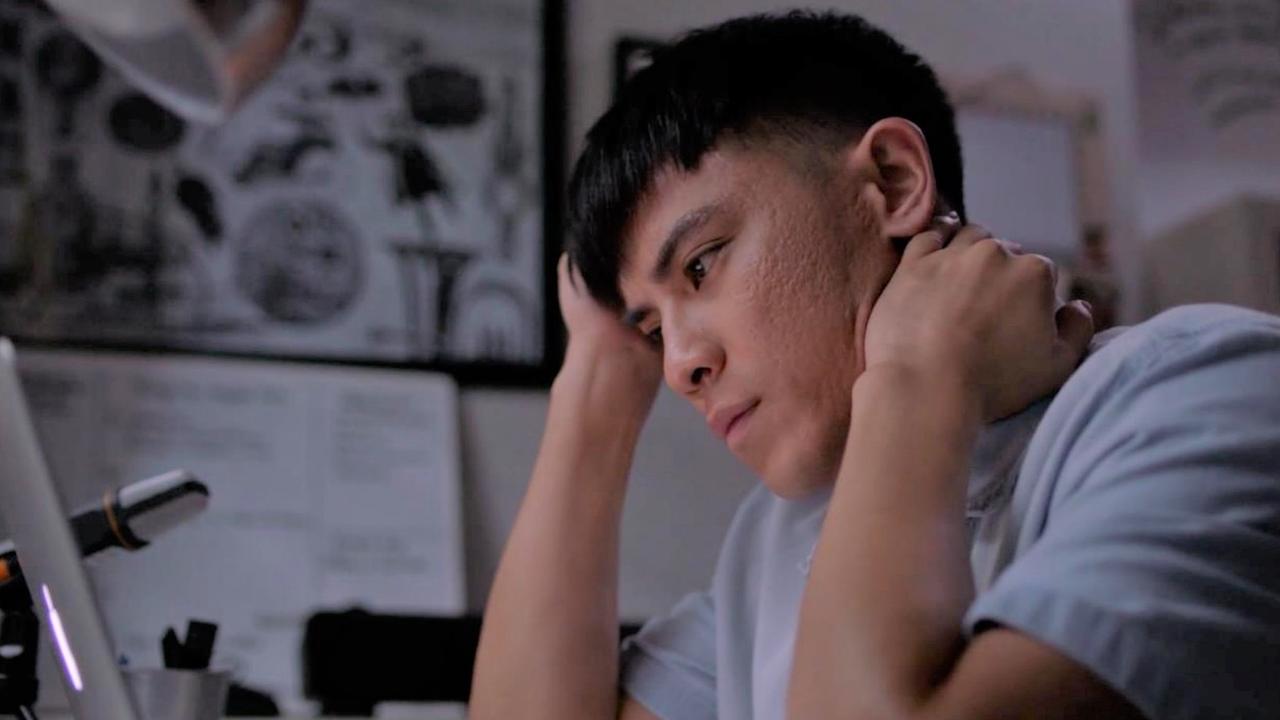
It goes viral, but also sees Sean sued for defamation and arrested under Singapore’s controversial laws on “hurting religious feelings” and “fake news”.
What’s starts off as a comic family movie poking fun at uppity authority figures then goes somewhere far darker as the pastor’s homophobia goes unpunished while the victims of homophobia are locked up.
“In Singapore, people have been charged under laws that guard against denigrating the feelings of religious groups. To me that was a very slippery thing that you could post a YouTube video and end up in prison for months,” Kwek told news.com.au from Los Angeles.
A recurring image in the film is that of CCTV cameras.
“I’m looking not only at state surveillance but the tendency that we have in Singapore to police each other’s behaviour.”
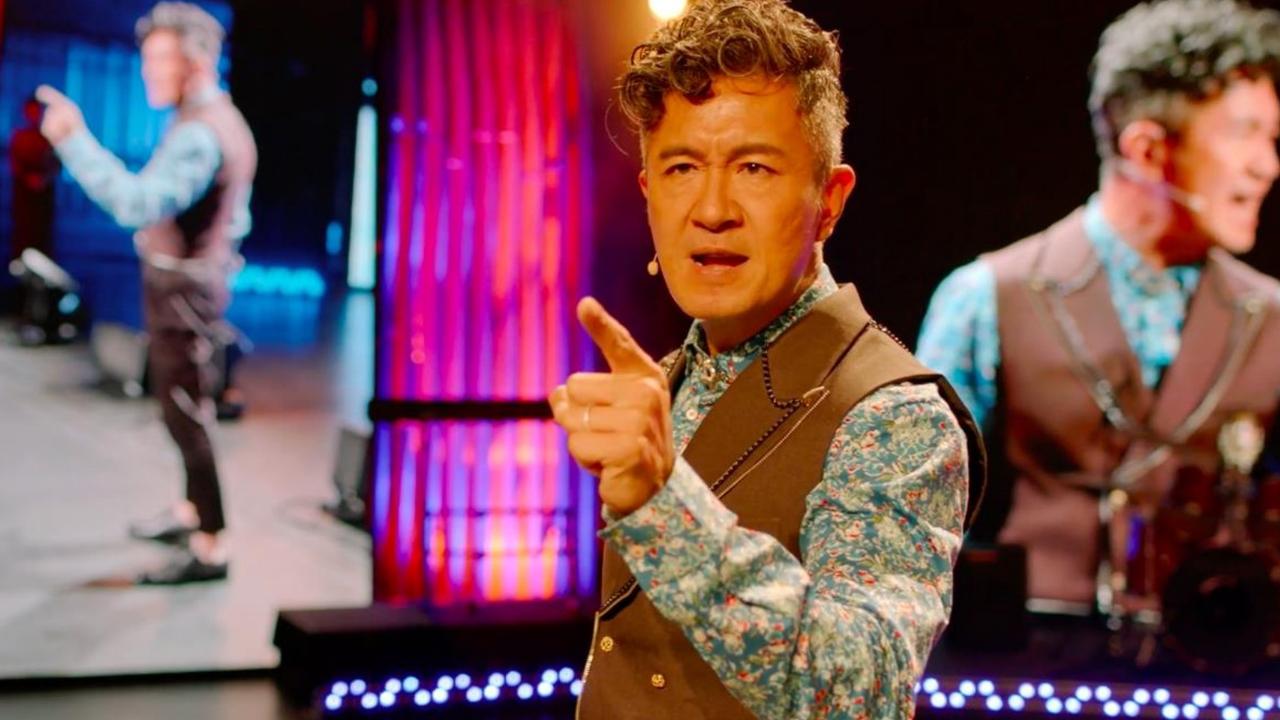
Singapore bans film being shown
The cast included many prominent Singaporean and Malaysian actors and comics. After successful and award-winning screenings at festivals including in New York, #LookAtMe was slated to have its home premiere at the Singapore International Film Festival in October.
That was until the nation’s censor as well as not one, but two, government ministries stepped in and refused permission for it to be shown.
The regulator said the character of the fictional pastor in the film was “suggestive of a real pastor in Singapore,” it accused the film of “suggesting or encouraging violence,” and that it was “offensive,” and “defamatory,” reported website Channel News Asia.
It also stated the pastor character was seen engaging in an act “prohibited by his faith”.
Film classification guidelines in Singapore state that “films that are likely to denigrate any racial or religious group should be refused classification”.
The Singapore Film Festival was forced to can the movie but kept it in the schedule as a sign of protest.
It’s not the first time Kwek has run afoul of Singapore’s censors.
His 2012 anthology Sex. Violence. Family Values was also, albeit temporarily, banned one day after its local release after some members of Singapore’s Indian community complained about its content which Kwek has insisted was satirical.
“I promise you, I do not set out to do this,” said Kwek, who added he only wanted to make a movie that encouraged debate.
“But these things happen. I try not to let the taste or climate for the kinds of art that is (deemed permissible) in Singapore to dictate too much of how I want to tell a story.”
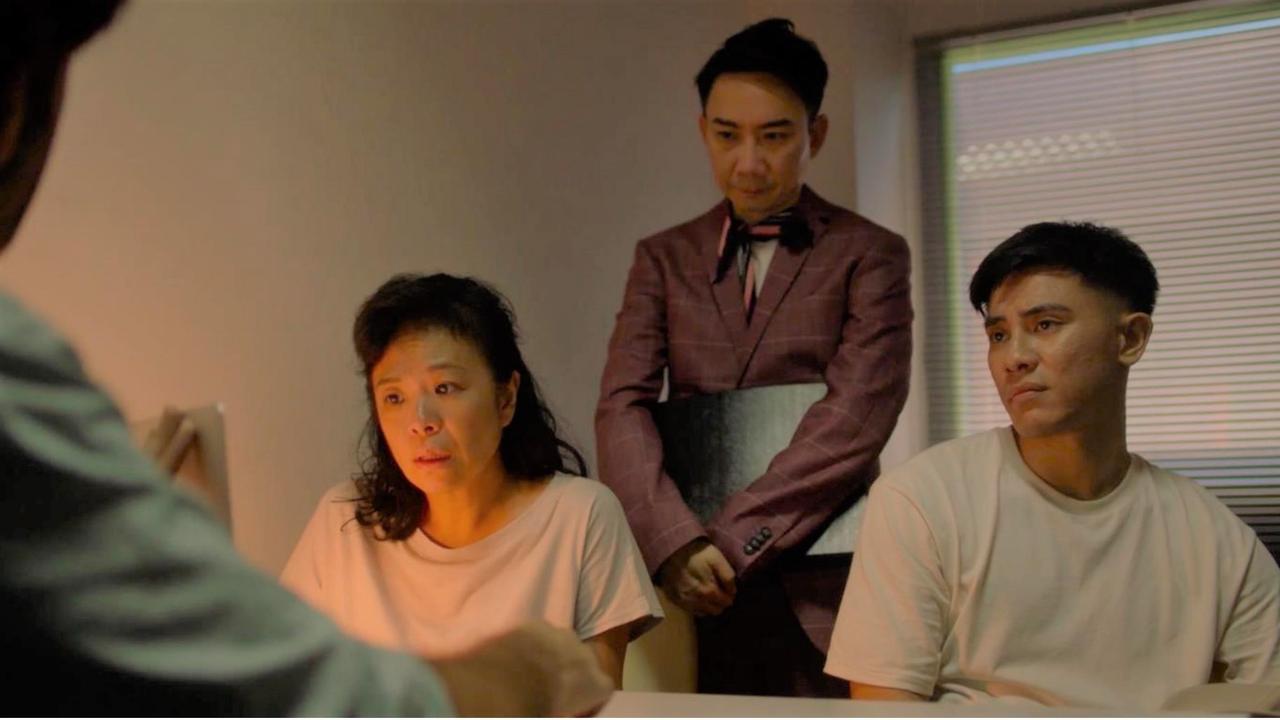
Gay characters rarely seen in Singapore
Although it wasn’t singled out by the regulators, another stumbling block to #LookAtMe’s release, suspected Kwek, was that it featured a prominent gay character. Representations of LGBT people are rare in mainstream Singapore culture, he said.
That’s been because of Section 377A, a colonial era law that criminalised sex between men. Since 2007, it hadn’t been enforced and authorities turned a blind eye to homosexuality.
But the very fact it existed – and could be used – had ramifications on Singapore’s LGBT community.
“It’s not the worst place to be gay,” said Kwek, who stressed that he can only speak from his observations as a straight man.
“For an upper middle class gay man with more progressive friends, maybe he’s not going to feel that he’s in much physical danger in Singapore. But for a younger kid from a family that has more conservative views, it’s harder for them to come out and very hard for them to report bullying.”
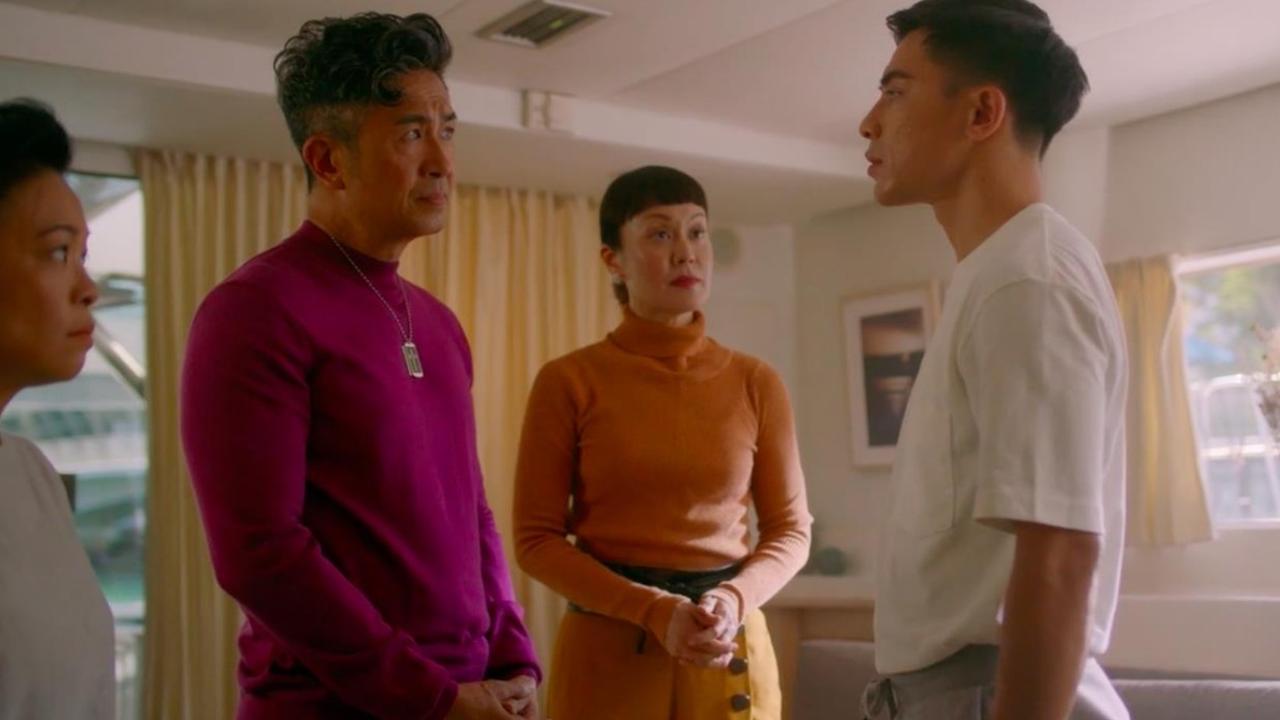
No Will & Grace in Singapore
Section 377A was repealed just last month, which Kwek said he “celebrated”. Homosexuality is no longer illegal in Singapore.
However, media regulations mean most shows with gay characters are rated for adults viewers. Even makeover show Queer Eye and sitcom Modern Family are only offered to audiences over 21 in the country.
In 2020, a gay character did appear in a Singaporean show – but he was a paedophile who spread an STI to a boy he assaulted.
“We don’t have a Will & Grace in Singapore, which was very radical but also mainstream,” said Kwek.
“Here it’s hard for local producers who may want to take interest in queer characters to be even be able to go there unless they just vaguely hint at it.”
#LookAtMe, however, refused to follow these rules.
“Right off the bat, I wanted to show a happy, healthy, queer family that love each other in such a mundane, normal sort of way,” said Kwek.
He said he was “chuffed” it was being shown in Sydney as part of Mardi Gras.
“Mardi Gras is famous so I’m very chuffed that the film is part of an event that’s a celebration and affirmation of queer freedom.”
Kwek’s film is being shown in cities around the world, to acclaim. He’s optimistic that at some point the residents of one particular city will be able to watch #LookAtMe too.
“I hope eventually, Singaporeans will get to see it in some way, shape or form.”
#LookAtMe will be shown in Sydney on Monday, February 20 at the Event George St and Thursday, February 23 at the Randwick Ritz as part of the QueerScreen Mardi Gras film festival.






